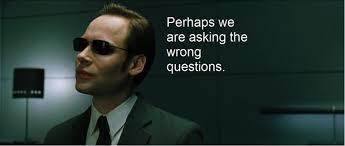We are encountering unprecedented turnover, engagement, talent acquisition/retention issues, at all levels in selling roles. The great resignation, quiet quitting, employee engagement, and other terms have become commonplace in corporate talent conversations. At the same time, we read about “burn out.”
Simultaneously, we are facing recession and talent shortages in key seller roles. Leaders look at substantive layoffs, while at the same time continue critical recruiting. We see declines in tenure, at all levels in selling. Tenures of roughly 11 months!
Leaders are struggling with what to do…….
They ask, “How do we create comp plans that attract and retain the right sellers…,” or, simply, “What if we just paid everyone more?”
At the same time, they look at, “How do we reduce these costs of selling? How do we automate more? How do we leverage less expensive talent?”
We see people (even experts) posing questions like, “How do we reduce our dependency on field sales–or sellers of all types?”
Others revel in the fact that customers want to minimize seller engagement, preferring digital buying.
While leaders try to address these things with their people, they are demonstrating the same behaviors, themselves. Shorter tenures, moving from job to job. And with this, their vision becomes less on the long term success of the organization, and more on the short term impact they can have, before they move on.
Burnout has become a tough and real issue at all levels.
As we seek to respond to these issues, I wonder if we are asking ourselves the right questions.
Our questions shape the potential solutions we might consider.
What if we stopped asking questions focused on responding to these crises and how we handle them? Instead, what if we started to understand, “Why are these things happening, what do we have to change?
Instead of looking at how do we respond to increases in attrition, reduced tenure, the inability to retain talent; what if we looked at why these occur? What if we tried to understand what we have to change to create workplaces where people feel challenged, see a future, feel heard and cared for?
Instead of responding to the extreme levels of attrition by reducing our dependency on sales people, what if we tried to understand that attrition.
Related, as customers, increasingly prefer rep-free buying experiences, why don’t we look at, “What are the selling interventions that create real value?”
Instead of reacting to all these massive changes we are faced with, what if we tried to understand why they occur. By looking at the issues differently, perhaps we can develop better solutions and approaches for managing them.

Leave a Reply